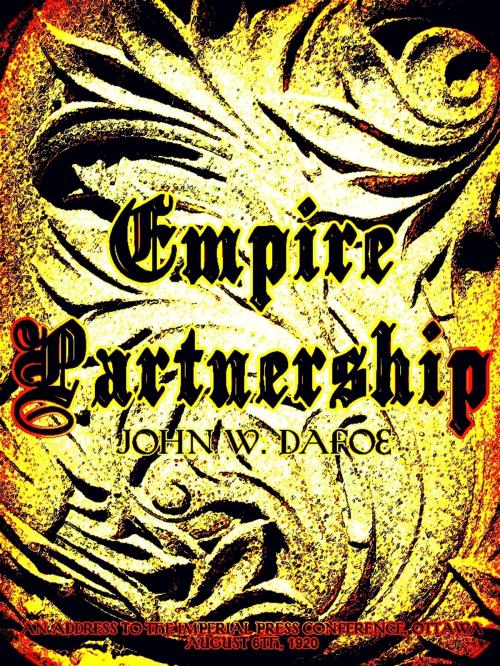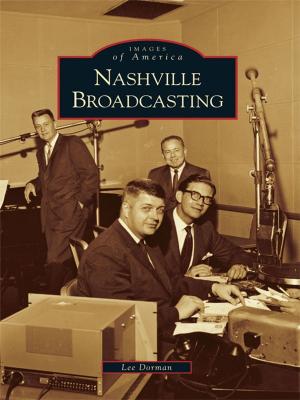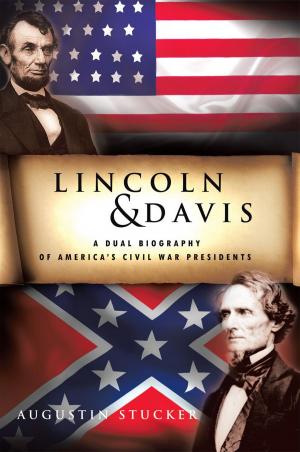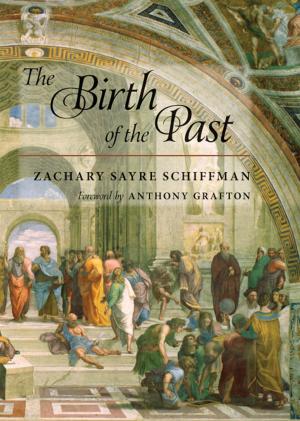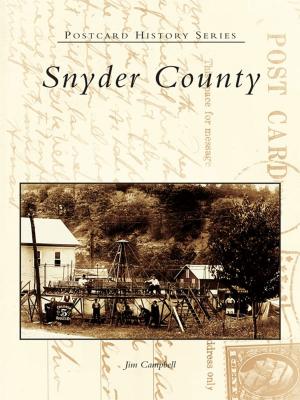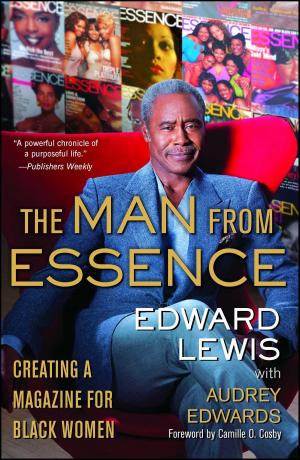Empire Partnership
Business & Finance, Business Reference, Business Writing, Fiction & Literature, Short Stories, Nonfiction, History| Author: | John Wesley Dafoe | ISBN: | 1230000287508 |
| Publisher: | Unknow | Publication: | December 23, 2014 |
| Imprint: | Language: | English |
| Author: | John Wesley Dafoe |
| ISBN: | 1230000287508 |
| Publisher: | Unknow |
| Publication: | December 23, 2014 |
| Imprint: | |
| Language: | English |
Example in this ebook
On the afternoon of the second day of the conference a discussion on Empire partnership was opened by Mr. J. W. Dafoe.
Mr. Dafoe: In opening this discussion I do not propose a resolution because I do not claim to speak for anyone but myself, and those who agree with me (laughter). Those of us who were privileged to be members of the first Imperial Press Conference will remember that a somewhat similar subject occupied a great deal of our time. In fact, it occupied two thirds of our time. It is a significant fact, showing the change that has taken place, that today we are discussing empire partnership while eleven years ago the discussion turned upon empire defence. There was a note of warning and apprehension running through all the discussion at the first conference. There was one word mentioned over and over again—the word Armageddon. In Lord Rosebery's famous speech, to which so many allusions have been made the word occurred, and Stanley Reed of India, in arguing for unity of naval control, said that the Armageddon of the world might be fought at Cape Horn. He was not so far astray, seeing what took place at the battle fought later near the Falkland Islands. Mr. Balfour was still more accurate as a prophet when he said that the naval Armageddon would be fought in the waters of the British Islands. (hear, hear.) But among the prophetic speeches made at that conference that of Lord Roberts' took first place. I made a reference to this the other day. Since then I have looked up Lord Roberts' words. He followed Mr. Haldane, as he was then, who said that the plans which were in process of completion would guarantee the empire a strong defence in twenty years. Lord Roberts said that he thought twenty months would be more in order, and he used this language: "A shot fired in the Balkan peninsula might produce an explosion which would change the fortunes of every remotest colony of our empire." That was the most remarkable example of prophecy that the conference could have produced (hear, hear). Many other speakers at the first conference felt in view of the imminence of the danger and its gravity that the time had arrived for formal engagements with regard to measures of defence and the creation of machinery to bring that defence into action, and more than one resolution of this character was submitted to the conference. They were not, however, forced to a vote because there were others who held contrary views, who believed that the policy was not in harmony with the evolutionary trend of events in the British empire and that the methods proposed were not of a practicable character. That view simply reflected similar differences of opinion throughout the empire. In all the dominions there were two well defined groups in reference to the question of imperial organization. One was the school of Burke, who placed very little reliance on forms and a great deal of reliance on spiritual ties and the bonds of blood. The other might be called the school of Hamilton who held that sentiment was very well but not very practical unless set forth categorically as obligations, with some agency available for their immediate application. So there was no decision reached by the first conference. The discussion between these two views went on in this particular dominion with a great deal of acrimony, and the most desperate parliamentary struggle that this building (the Canadian House of Commons) ever saw was waged over that principle. This went on until the voices of the disputants were drowned by the drum beats calling the armies to the field.
To be continue in this ebook
Example in this ebook
On the afternoon of the second day of the conference a discussion on Empire partnership was opened by Mr. J. W. Dafoe.
Mr. Dafoe: In opening this discussion I do not propose a resolution because I do not claim to speak for anyone but myself, and those who agree with me (laughter). Those of us who were privileged to be members of the first Imperial Press Conference will remember that a somewhat similar subject occupied a great deal of our time. In fact, it occupied two thirds of our time. It is a significant fact, showing the change that has taken place, that today we are discussing empire partnership while eleven years ago the discussion turned upon empire defence. There was a note of warning and apprehension running through all the discussion at the first conference. There was one word mentioned over and over again—the word Armageddon. In Lord Rosebery's famous speech, to which so many allusions have been made the word occurred, and Stanley Reed of India, in arguing for unity of naval control, said that the Armageddon of the world might be fought at Cape Horn. He was not so far astray, seeing what took place at the battle fought later near the Falkland Islands. Mr. Balfour was still more accurate as a prophet when he said that the naval Armageddon would be fought in the waters of the British Islands. (hear, hear.) But among the prophetic speeches made at that conference that of Lord Roberts' took first place. I made a reference to this the other day. Since then I have looked up Lord Roberts' words. He followed Mr. Haldane, as he was then, who said that the plans which were in process of completion would guarantee the empire a strong defence in twenty years. Lord Roberts said that he thought twenty months would be more in order, and he used this language: "A shot fired in the Balkan peninsula might produce an explosion which would change the fortunes of every remotest colony of our empire." That was the most remarkable example of prophecy that the conference could have produced (hear, hear). Many other speakers at the first conference felt in view of the imminence of the danger and its gravity that the time had arrived for formal engagements with regard to measures of defence and the creation of machinery to bring that defence into action, and more than one resolution of this character was submitted to the conference. They were not, however, forced to a vote because there were others who held contrary views, who believed that the policy was not in harmony with the evolutionary trend of events in the British empire and that the methods proposed were not of a practicable character. That view simply reflected similar differences of opinion throughout the empire. In all the dominions there were two well defined groups in reference to the question of imperial organization. One was the school of Burke, who placed very little reliance on forms and a great deal of reliance on spiritual ties and the bonds of blood. The other might be called the school of Hamilton who held that sentiment was very well but not very practical unless set forth categorically as obligations, with some agency available for their immediate application. So there was no decision reached by the first conference. The discussion between these two views went on in this particular dominion with a great deal of acrimony, and the most desperate parliamentary struggle that this building (the Canadian House of Commons) ever saw was waged over that principle. This went on until the voices of the disputants were drowned by the drum beats calling the armies to the field.
To be continue in this ebook
